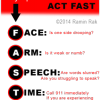Hi all, Ramin Rak here with another blog post about my work as a neurosurgeon.
I am affiliated with Neurological Surgery, P.C., New York’s private largest neurosurgical group. One of the resources that Neurological Surgery, P.C. uses to provide better treatment is the Long Island Brain Tumor Center (their official website is located here).
I am one of the neurosurgeons who is part of the Neurosurgeon Brain Tumor Team, along with:
- Dr. Michael H. Brisman, M.D., F.A.C.S.
- Dr. Jeffrey A. Brown, M.D., F.A.C.S.
- Dr. Lee Eric Tessler, M.D., F.A.A.N.S.
- Dr. Alan Mechanic, M.D., F.A.C.S.
- Dr. Robert N. Holtzman, M.D.
- Dr. Vladimir Dadashev, M.D.
- Dr. Gerald M. Zupruk, M.D., F.A.A.N.S.
The Brain Tumor Team also includes an Endovascular Neuroradiologist (Dr. John Pile-Spellman, M.D.), a Neuropsychologist (Dr. Gad E. Klein, Ph. D.), and two neuro-oncologists (Dr. Paul Duic, M.D. and Dr. Jai Grewal, M.D.).
The Long Island Brain Tumor Center focuses on treating conditions like acoustic neuroma, schwannoma, ependymoma, astrocytoma, and other ailments related to brain tumors.
A brain tumor occurs as a result of uncontrolled cell division in the brain itself, glial cells, lymphatic tissue, the cranial nerves, brain envelopes, the skull, pituitary and pineal gland, or can even be spread from cancer located in other areas. Symptoms of a brain tumor include phantom odors and tastes, while onset symptoms like an epileptic seizure in a patient with no history of epilepsy or sudden intracranial hypertension have also been observed.
The team of neurosurgeons within the Long Island Brain Tumor Center diagnoses tumors using computed tomography (CT) and magnetic resonance imaging (MRI) mapping techniques.
Tumors must be investigated before a diagnosis and treatment options can be determined, but the good news is that not all brain tumors are cancerous.
Take a look at my other blog posts to find out how I use techniques like Gamma Knife, and CyberKnife procedures to treat brain tumors without surgery.
Thanks for reading,
Ramin Rak



